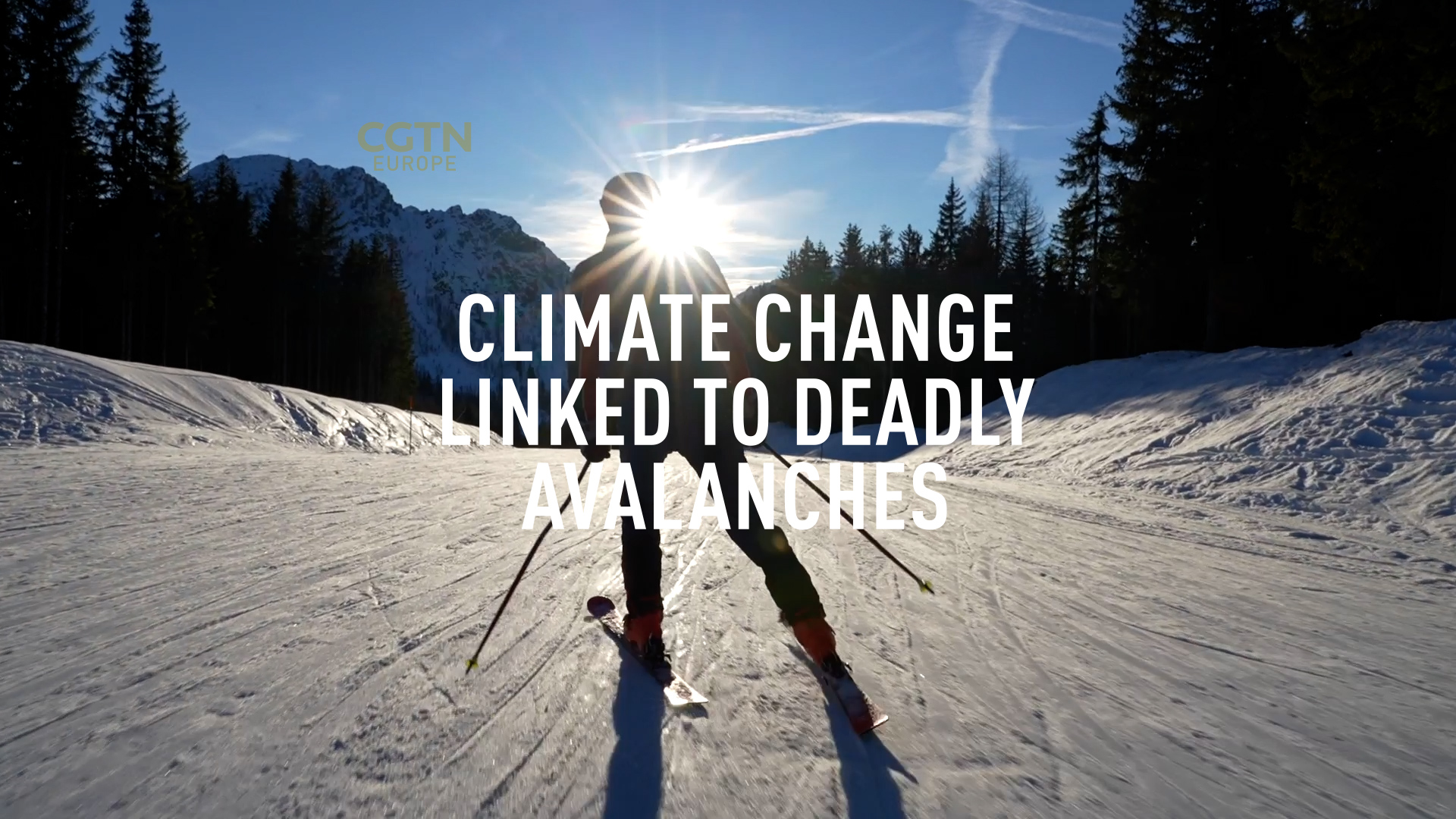03:30

A meteorologist from Italy's environmental protection agency has warned that the Alps will need to adapt even more to extreme imbalances in the weather, as climate change is increasingly linked to deadly avalanches and snowless slopes that have left businesses worried for their financial future.
Italy endured a prolonged heat wave last year before a massive piece of the Marmolada glacier broke off and killed 11 hikers in July. Higher temperatures, coupled with below-average winter snowfall, were among the factors that may have triggered the event, experts said.
The exact role of climate change in specific events is complicated and large portions of ice can break off Alpine glaciers naturally. But some have warned that climate change is fueling higher temperatures that can lead to more ice and snow melt.
"Very high temperatures for so many days caused a very rapid melting and then parts of the Marmolada glacier slid, with unfortunately many casualties," said Sergio Nordo from Italy's environmental protection agency ARPA.
Disappearing glaciers
Glaciers are in retreat throughout Italy, the Alps and across the world. Between the late 19th and early 21st century, temperatures in the Alps have increased twice as quickly as the global average, according to Copernicus, the European climate modeling group.
The UN has identified the Mediterranean basin, that includes Italy, as a climate change hot spot prone to heat waves. The government's National Research Council said the Marmolada glacier has been shrinking for decades and may vanish in 25 to 30 years.
Before the avalanche, daytime temperatures at the glacier's altitude were around 10 degrees Celsius when they normally don't rise much above freezing. This year, record-high winter temperatures swept across parts of Europe over the new year, bringing calls from activists for faster action against climate change.
Hundreds of sites saw their temperature records smashed, from Switzerland to Poland to Hungary, which registered its warmest Christmas Eve in Budapest and saw temperatures climb to 18.9 degrees Celsius on January 1.
Source(s): AP
,Reuters